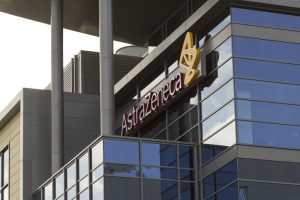AstraZeneca says buying Alexion will generate saving of $500m a year thanks to manufacturing and commercial synergies.
AstraZeneca announced it would buy Alexion for a total consideration of $39 billion at the weekend, citing the latter’s capabilities in immunology as the primary driver for the deal.
Coverage has focused on products Alexion will add to AstraZeneca’s pipeline with the monoclonal antibody-based blood disorder treatments Soliris (Eculizumab) and Ultomiris (ravulizumab) being the obvious examples.

Image: iStock/hapabapa
In its Q3 call Alexion said it expects Soliris and Ultomiris to generate $5 billion, which would up an increase of around 17% from the amount brought in last year.
The deal will also expand AstraZeneca’s production capacity according to Alexion CEO Ludwig Hantson.
“We bring to AstraZeneca a strong portfolio, innovative rare disease pipeline, a talented global workforce and strong manufacturing capabilities in biologics.”
Manufacturing network
According to its 2019 report Alexion’s manufacturing internal manufacturing capacity includes a fill/finish facility in Athlone and a packaging facility in Dublin, Ireland as well as a production facility in Georgia, US.
The firm also uses contract development and manufacturing organizations (CDMOs). For example, Lonza provides bulk drug substance production and other services like purification, product filling, finishing, packaging, and labelling.
How AstraZeneca will integrate Alexion’s facilities into its manufacturing network is unclear.
The Anglo-Swedish drug maker said, “The acquisition is expected to realize recurring run-rate pre-tax synergies of c.$500m per year from the combined Group, generated from commercial and manufacturing efficiencies as well as savings in central costs, with full run-rate expected to be achieved by end of the third year following completion of the acquisition.
“To realize the total synergies, AstraZeneca expects to incur one-time cash costs of c.$650m, during the first three years following completion.”
AstraZeneca added it intends to establish Alexion’s unit in Boston, Massachusetts, US as its headquarters for rare diseases.
